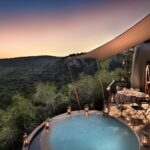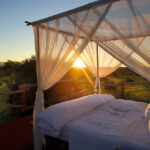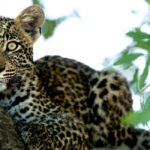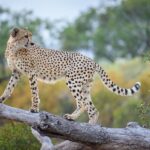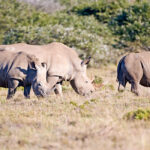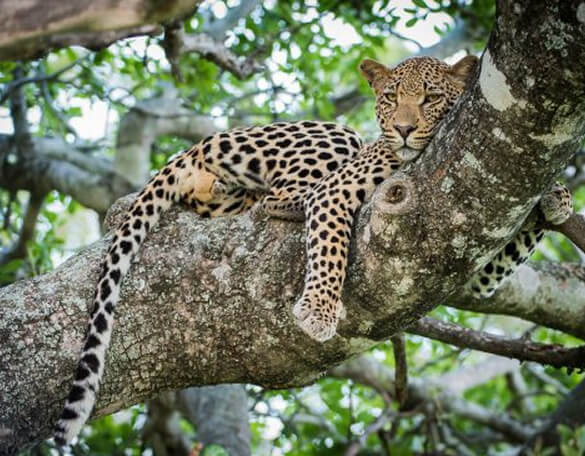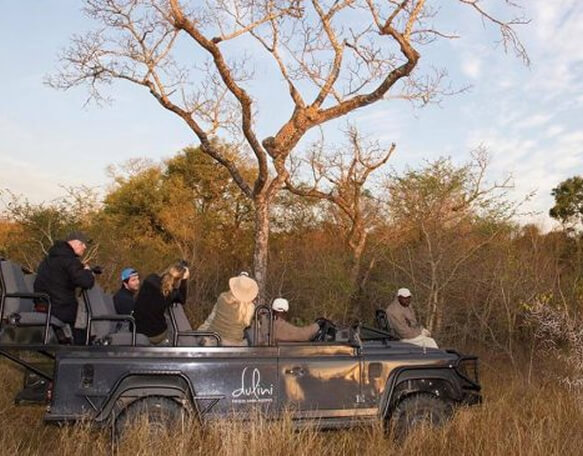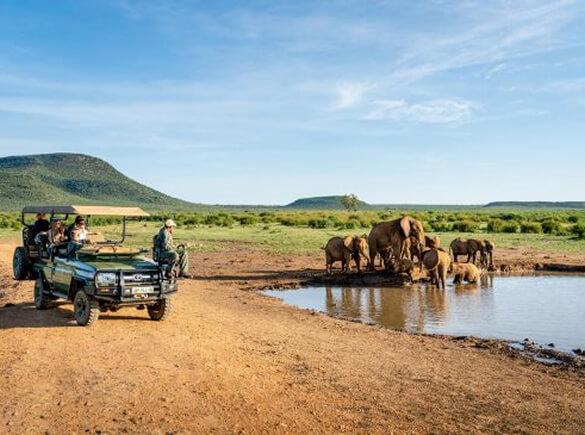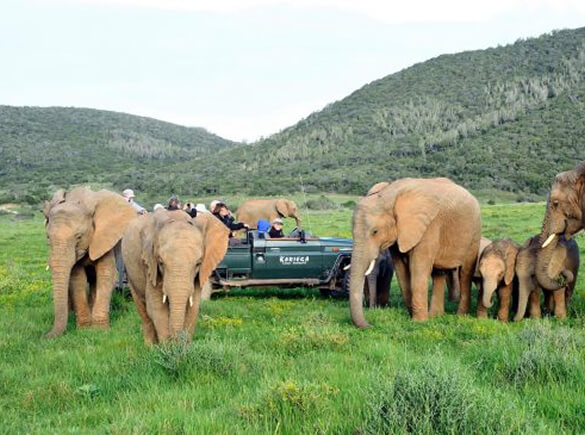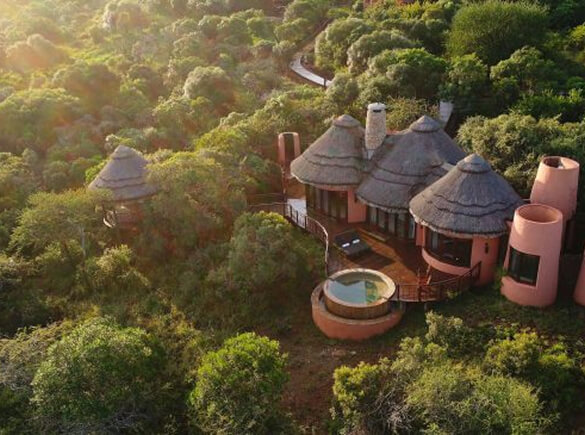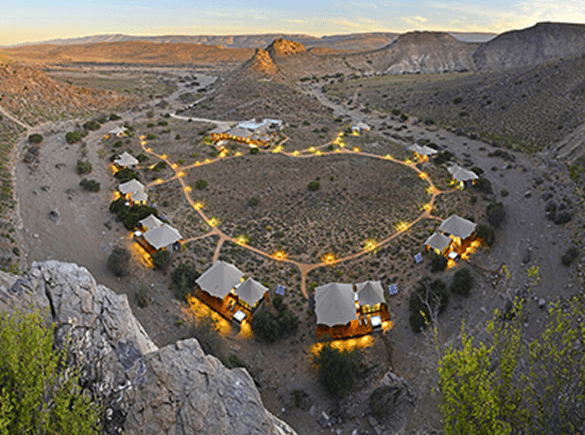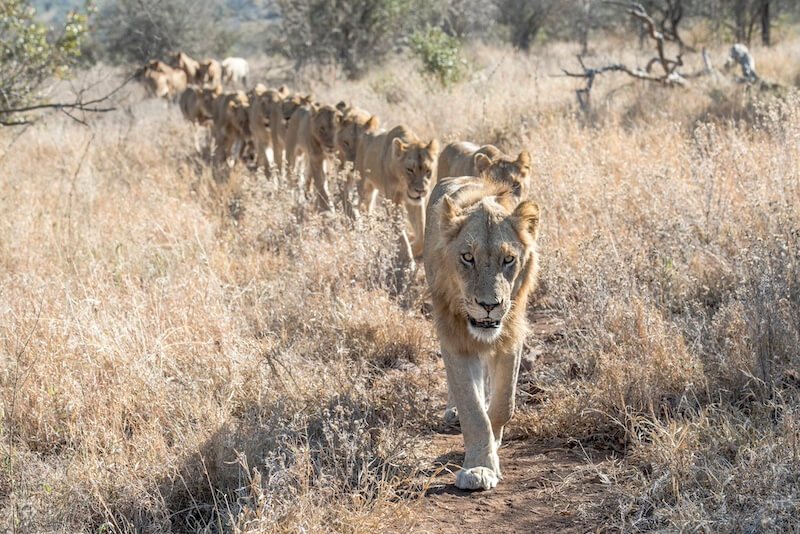
South Africa is a dream safari destination. It’s a country with diverse landscapes, rich history, and a thriving wildlife population, making it an ideal destination for a first choice safari destination. South Africa is certainly one of the best destinations in the world to see African wildlife, thanks to its incredible national parks, wildlife rich game reserves, and diverse landscapes. From the vast savannahs of Kruger National Park to the rugged terrain of the Eastern Cape, South Africa has something to offer everyone. With a range of accommodation options and safari experiences available, there’s something to suit every budget and preference. Here are 10 reasons why you should consider going on a safari in South Africa:
1. South Africa’s Incredible Wildlife
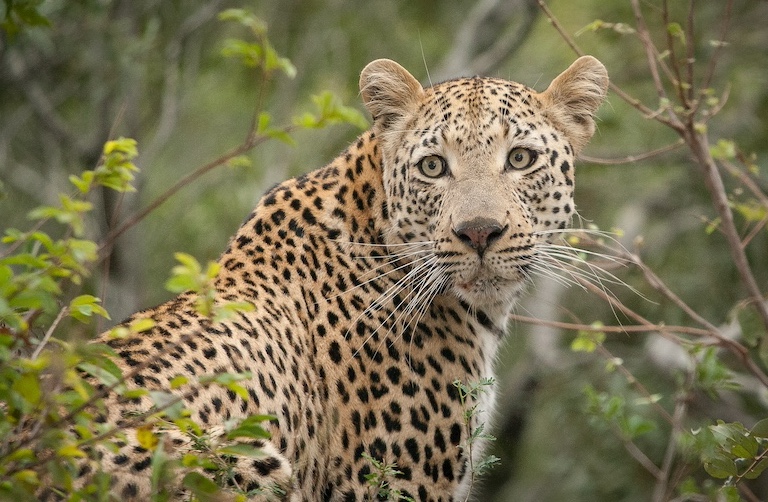
The highlight of any safari in South Africa is undoubtedly its extraordinary wildlife. With a rich variety of ecosystems, ranging from savannas and wetlands to mountains and coastal reserves, the country supports an incredibly diverse array of species. This unique biodiversity allows countless animals, including hundreds of bird species, to thrive in their natural habitats.
South Africa is most famous for its high concentration of the Big Five; lion, leopard, elephant, rhino, and buffalo. The thrill of witnessing these iconic animals in the wild is an unforgettable experience. The Kruger National Park alone is home to an estimated 1,500 lions, 1,000 leopards, 17,000 elephants, 48,000 buffalo, and over 2,000 rhinos, making it one of the best places in Africa to spot them.
Beyond the Big Five, South Africa is home to a vast range of other wildlife, including giraffes, zebras, hippos, cheetahs, hyenas, and the highly endangered African wild dog. The country’s diverse habitats also support lesser-known species such as servals, caracals, jackals, aardvarks, pangolins, and a variety of antelope species. Visitors can also encounter an abundance of smaller mammals, including mongooses, honey badgers, hedgehogs, and various rodents.
For birdwatchers, South Africa is a paradise, boasting over 500 recorded bird species, many of which are migratory. The country’s rivers, lakes, and wetlands attract an impressive variety of birdlife, from vibrant kingfishers and majestic fish eagles to flocks of flamingos and rare raptors.
Whether you’re searching for Africa’s most famous predators, rare and elusive species, or a breathtaking birding experience, South Africa’s incredible biodiversity ensures that every game drive, bush walk, or safari adventure is filled with unforgettable wildlife encounters.
The Circle of Life
South Africa’s wildlife plays a crucial role in maintaining the balance of its ecosystems. The food chain in this diverse environment is a delicate cycle, where each animal and plant interacts to support life. Large herbivores, like elephants and buffalo, graze on grasses and vegetation, which helps keep plant life in check, allowing a variety of plants to thrive. Carnivores, such as lions, leopards, and cheetahs, keep herbivore populations in balance, ensuring that no species overgrows or depletes resources.
Predators also help shape the gene pool by targeting the weaker and slower members of prey species, maintaining healthy animal populations. Additionally, scavengers like hyenas and vultures play an essential role by cleaning up carcasses, returning nutrients to the soil and ensuring the ecosystem remains healthy.
This complex web of interdependence ensures that the circle of life in South Africa remains intact, supporting a thriving, sustainable environment for both flora and fauna.
2. All Year Round Safari Destination
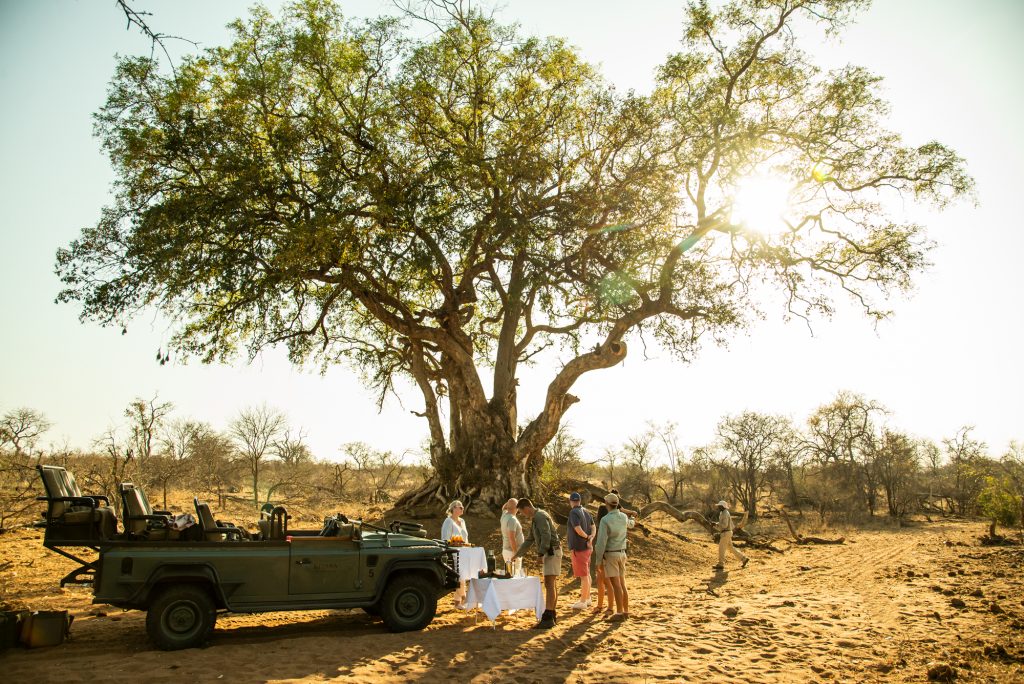
South Africa is a year-round safari destination, allowing you to visit anytime from January to December. However, the best time for a safari depends on what you wish to see and which region you plan to visit. There are seasonal differences that can influence your experience, making certain times of the year more suitable for specific wildlife sightings or activities.
The Northern Provinces, including Kruger National Park, have a tropical climate with a dry winter from May to September. These dry months are considered the best for safari, as the sparse vegetation makes it easier to spot wildlife, particularly around water sources. The mild temperatures during the day, combined with cooler mornings and evenings, create ideal conditions for game viewing. For those looking to see the “Big Five,” this is the most popular time to visit.
If you’re interested in newborn animals, the start of the wet summer season, from October to December, is the best time to visit. During these months, many species, including antelope, give birth, attracting predators and creating a unique dynamic in the wild. Additionally, birdwatching is fantastic during this time as many migratory birds arrive in South Africa. The lush landscapes from the rain make it an ideal time for photographers and nature lovers.
The Cape regions experience different seasons due to their Mediterranean and subtropical climates. From October to April, these areas are ideal for combining a safari with a coastal vacation, such as exploring Cape Town or visiting the Garden Route. While the weather along the coast is warmer and sunnier during these months, the inland safari destinations can still offer exciting wildlife experiences.
3. Uncrowded Game Drives
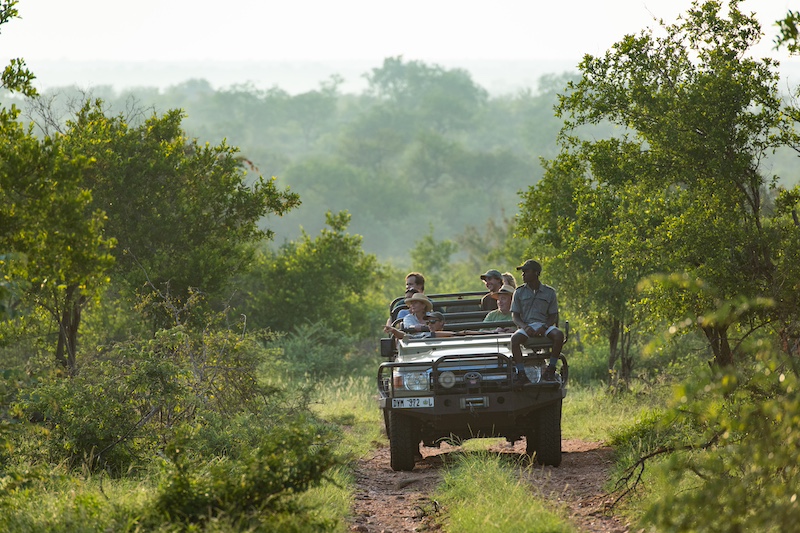
Another reason South Africa is a top safari destination is its uncrowded game drives. Game drives in South Africa are regarded as some of the best worldwide. Unlike many other countries, where vehicles must stay on designated roads, South Africa’s private reserves allow off-road driving, enabling closer and more intimate wildlife encounters. This freedom significantly increases the chances of spotting the renowned Big Five.
One of the key factors that make South Africa stand out as a safari destination is the restriction on the number of vehicles allowed at sightings. Each game drive follows a traverse agreement, granting access to extensive areas. Rare sightings on neighboring reserves may occasionally be shared through coordination between guides. Conservation is a top priority in South Africa, with strict rules in place to minimize human impact and preserve the fragile ecosystem. Only two or three vehicles are allowed at any single sighting, ensuring the animals remain undisturbed and behave naturally.
Safari vehicles in South Africa are specially designed for comfort and optimal wildlife viewing. Modified 4x4s feature extra-long seating for added legroom and open roofs for 360-degree visibility, allowing guests to fully immerse themselves in nature. These open roofs offer the chance to see leopards in trees, birds in flight, and enjoy the fresh African air.
Built for both power and comfort, the vehicles navigate rugged terrain, cross rivers, and handle tough environments with ease while providing a smooth ride. Game drives are led by experienced guides and trackers who share a deep knowledge of the region’s flora and fauna. These drives typically take place in the early mornings and late afternoons when animals are most active.
4. Relaxed Rules and Restrictions
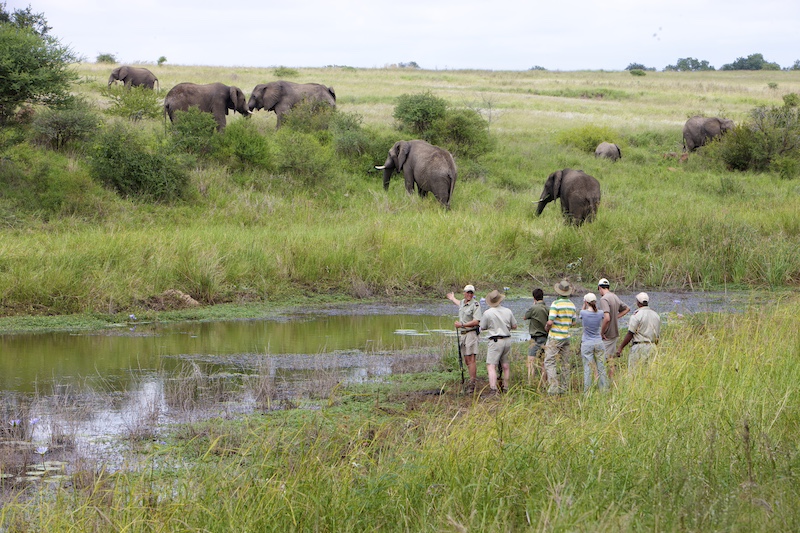
South Africa’s private reserves offer exciting activities not typically allowed in national parks worldwide, such as off-road game drives for closer wildlife encounters and rare photo opportunities. Guests can enjoy unique experiences like treehouse sleepouts, helicopter flights, small aircraft tours, and participation in conservation programs like rhino tagging.
Night game drives and the freedom to explore the reserve at any time of day enhance the safari experience. Sundowner stops to watch the sunset with refreshments, guided bush walks focusing on smaller wildlife and flora, and outdoor dining in a traditional Boma or remote bush locations further invite guests in the African wilderness. These relaxed rules and varied activities make South Africa’s private reserves a preferred safari destination.
5. Award-Winning Safari Accommodation
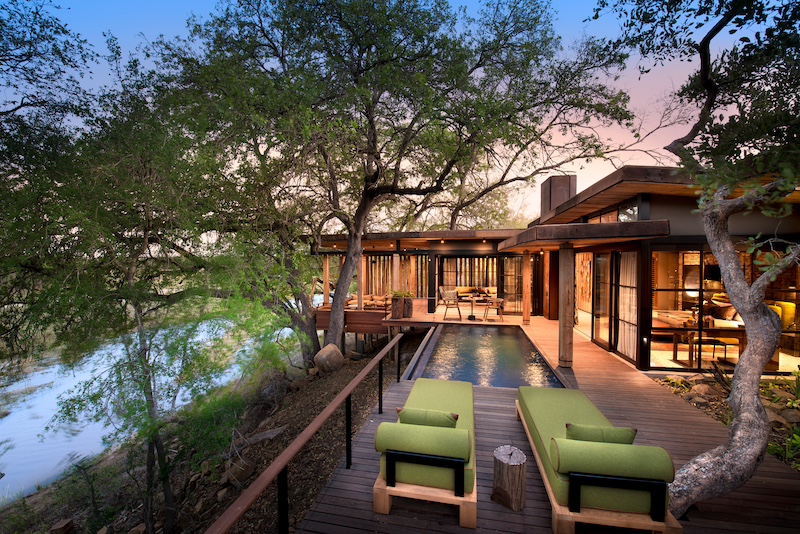
South Africa is home to some of the world’s most spectacular safari accommodations. Renowned brands like Singita, Royal Malewane, and Lion Sands Collection set the standard for luxury, offering breathtaking settings, impeccable service, and outstanding dining experiences. Many lodges hold prestigious awards, including the esteemed Relais & Châteauxstatus, a hallmark of excellence.
Guests can enjoy fine dining, elegant cocktail bars, infinity pools overlooking the bushveld, and traditional open-air bomas for dining under the stars. Accommodation ranges from classic safari lodges to ultra-luxurious tented camps, with private suites and exclusive-use villas providing personalized service and ultimate privacy.
Strategically located along rivers and waterholes, these lodges offer exceptional wildlife viewing right from your suite or lodge deck. Designed to blend seamlessly into their surroundings, they bring guests closer to nature without compromising on luxury.
For families, South Africa boasts high-standard, family-friendly lodges with kids’ clubs, junior ranger programs, and a wide selection of activities, ensuring a fun and educational experience for younger guests.
6. Accessibility
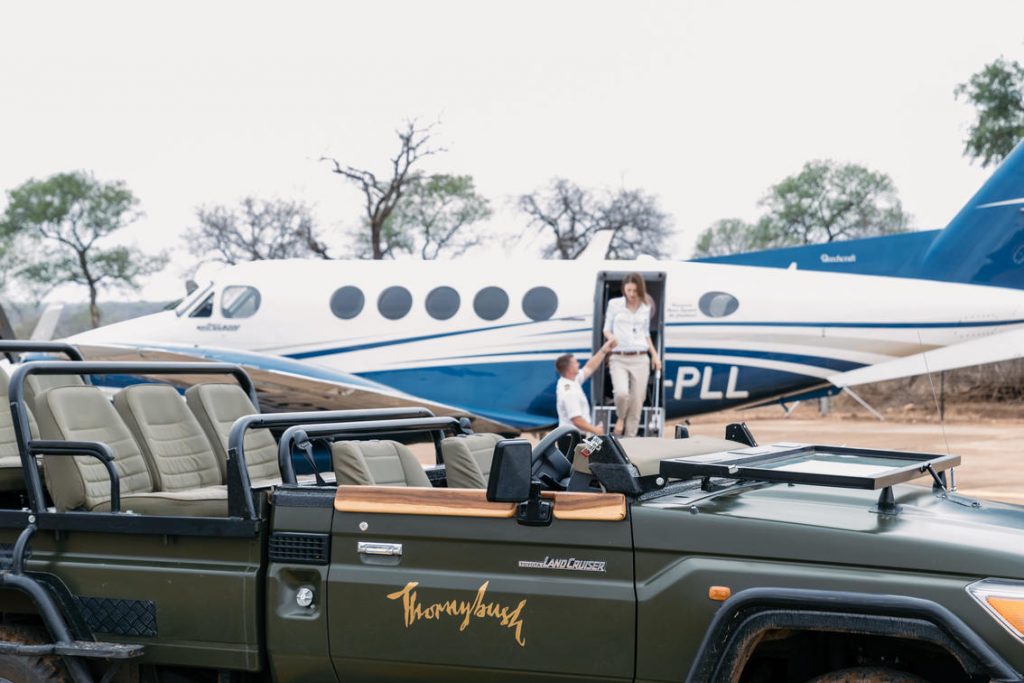
South Africa safaris are easy to access, thanks to well-developed roads and frequent flights to major airports. Cities like Cape Town and Johannesburg are well-connected to international hubs, and the country’s extensive road network makes it simple to travel between safari destinations. Unlike many other African countries with limited infrastructure, South Africa offers affordable, accessible travel options.
Several airports are close to main safari destinations, with daily flights and reliable transfer services dedicated to lodges and reserves, ensuring seamless travel. Many premium game reserves even have their own private airstrips, allowing visitors to fly directly in. Scheduled and private flights are available to these airstrips, providing a convenient and premium travel experience to safari destinations in South Africa.
7. Value & Pricing
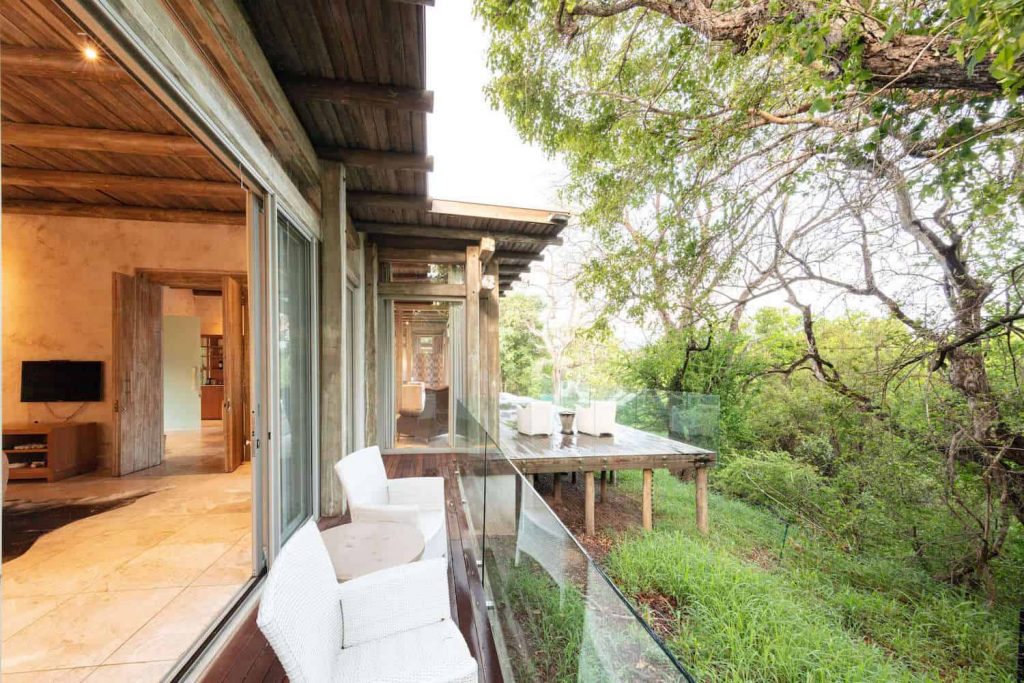
South Africa stands out as one of the most cost-effective safari destinations in Africa, offering exceptional value without compromising on quality. Unlike many neighbouring countries such as Zambia, Zimbabwe, Botswana, Kenya, and Tanzania, which price their safaris in US dollars, South Africa operates on its own currency, the South African Rand (ZAR). For travellers using foreign currencies like USD, GBP, or EUR, this results in significant savings, making a South African safari more affordable than other premier African safari destinations.
Despite its competitive pricing, South Africa delivers world-class luxury. Its prestigious safari lodges provide exceptional hospitality, breath-taking locations, and 5-star amenities, often at a lower cost than similar offerings in other African countries.
8. Diverse Safari Regions
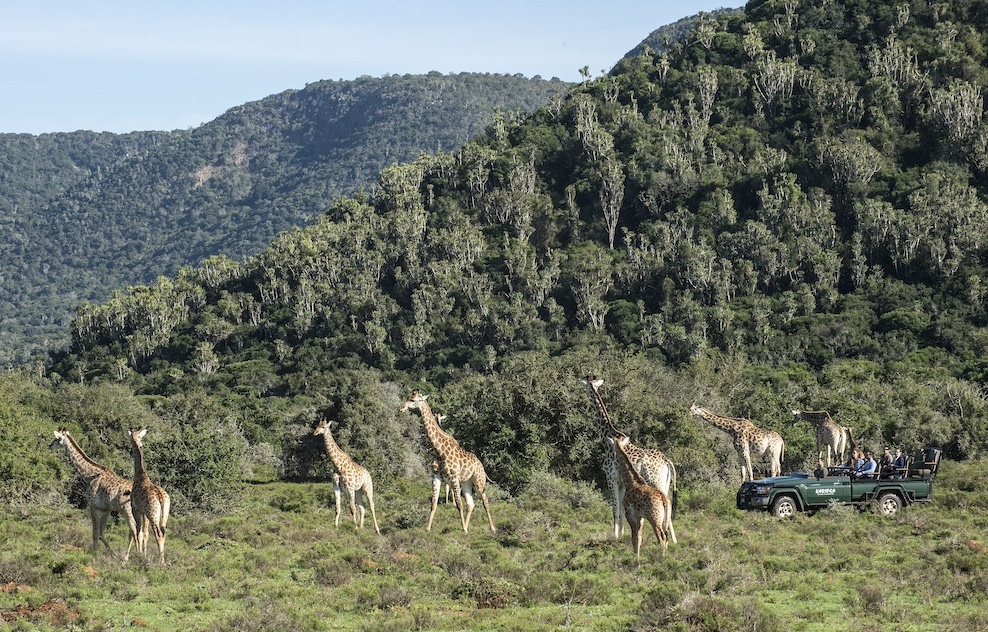
South Africa’s diverse landscapes offer an incredible range of safari experiences, each distinct in scenery and wildlife. From sweeping savannas and dense forests to mountain ranges and coastal ecosystems, the country’s varied terrain supports a rich abundance of animals and birdlife.
KwaZulu-Natal boasts lush coastal forests, rolling hills, and vast wetlands, home to thriving rhino populations and access to marine reserves along the Indian Ocean, where dolphins and seasonal humpback whales can be spotted. In contrast, Madikwe Game Reserve, located near the Botswana border, features arid savannas, rocky outcrops, and open plains, providing an ideal habitat for elephants and the elusive African wild dog.
The Greater Kruger region, including Sabi Sands, is South Africa’s premier wildlife destination with classic bushveld landscapes of golden grasslands, thornveld, wide savanna plains, woodlands and riverine forests. This area is particularly famous for its high concentration of the Big Five, with Sabi Sands offering some of the best leopard sightings in Africa. Meanwhile, the Eastern Cape presents a unique mix of rolling hills, deep valleys, and fynbos-covered landscapes, where visitors can combine Big Five safaris with marine encounters such as whale watching and shark diving along the coast.
With such a wide variety of destinations, South Africa offers an ever-changing safari getaway, ensuring that each visit is a unique experience.
9. Cultural Richness
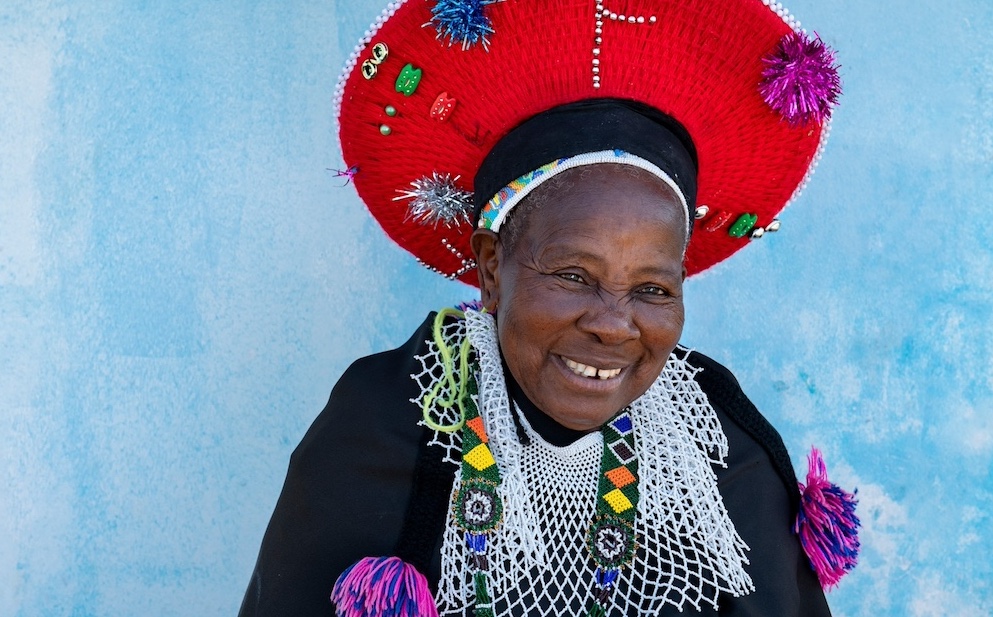
South Africa’s rich history and cultural heritage enhance the safari experience, offering travellers a deeper connection to the country. Home to diverse indigenous communities, each with unique traditions and languages, visitors can explore the customs of the San people, one of the world’s oldest cultures, as well as the Zulu, Xhosa, Sotho, and Ndebele.
In the Greater Kruger region ( Mpumalanga province), travellers can visit Shangaan villages to learn about their customs, storytelling, and traditional crafts. Many lodges offer educational cultural experiences, allowing guests to engage with local communities and witness traditional dances. KwaZulu-Natal offers similar opportunities, with authentic Zulu villages showcasing the proud warrior heritage and modern-day traditions of the Zulu people.
The Eastern Cape provides insight into Xhosa culture, with rural village visits and historical landmarks tied to Nelson Mandela and the anti-apartheid movement. Meanwhile, the Western Cape blends indigenous, colonial, and contemporary influences, from the Cape Malay heritage in Cape Town’s Bo-Kaap to the ancient traditions of the Khoisan people.
With such cultural diversity, a South African safari is more than just wildlife, it’s a journey into the country’s deep-rooted traditions and vibrant communities.
10. Sustainable Tourism
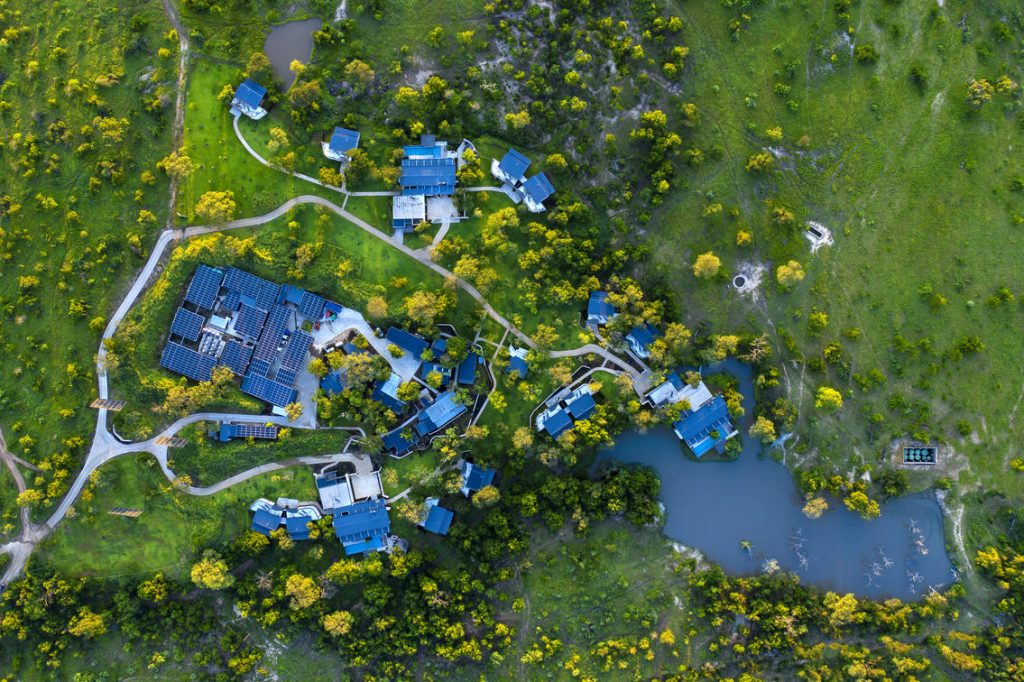
South Africa is a leader in sustainable tourism, with many safari lodges and reserves dedicated to conservation and eco-friendly practices. Safari destinations in South Africa actively support environmental protection and local communities.
Top safari lodges around South Africa implement green initiatives such as solar power, water recycling, and plastic-free policies. Some operate entirely off the grid, while others use sustainable architecture and locally sourced ingredients to minimise their carbon footprint.
Game reserves play a crucial role in conservation, with anti-poaching efforts, rhino protection programs, wildlife rehabilitation, and habitat restoration projects. Private reserves in South Africa contribute significantly to wildlife protection and rewilding efforts.
Community engagement is also key, with lodges supporting local education, job creation, and skills training. This ensures that conservation benefits both wildlife and the people living near these natural areas.
With a strong commitment to sustainability, South Africa’s safari industry sets a global example of responsible tourism, offering travellers an unforgettable adventure while contributing to the protection of nature and local communities.
Useful Information
If you are planning a luxury safari in South Africa, we recommend reading these articles.
- Best time to Go on safari in South Africa
- Best South Africa Safari Destinations
- South Africa Safari Holiday Packages
For personal planning assistance and advice contact out team.

